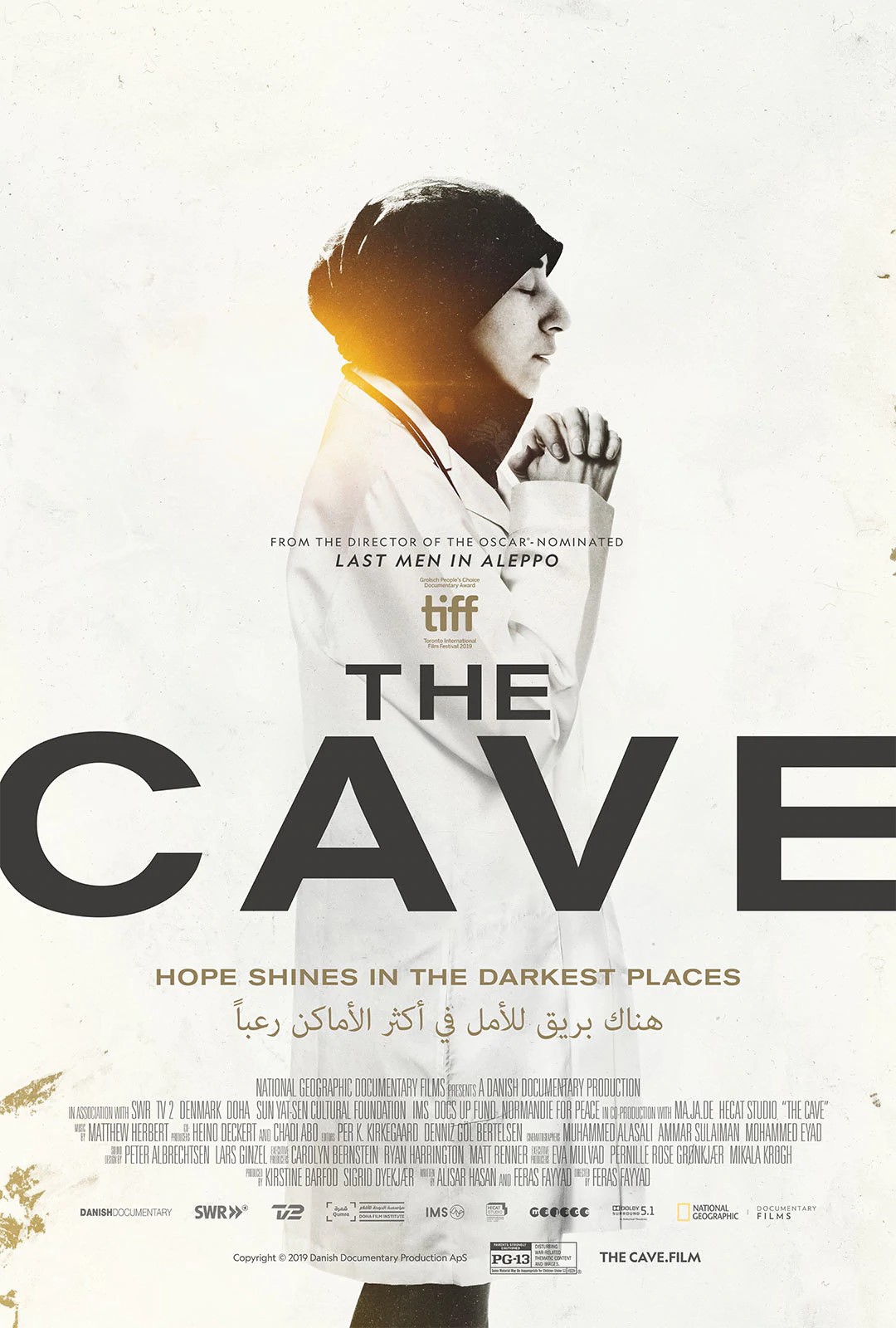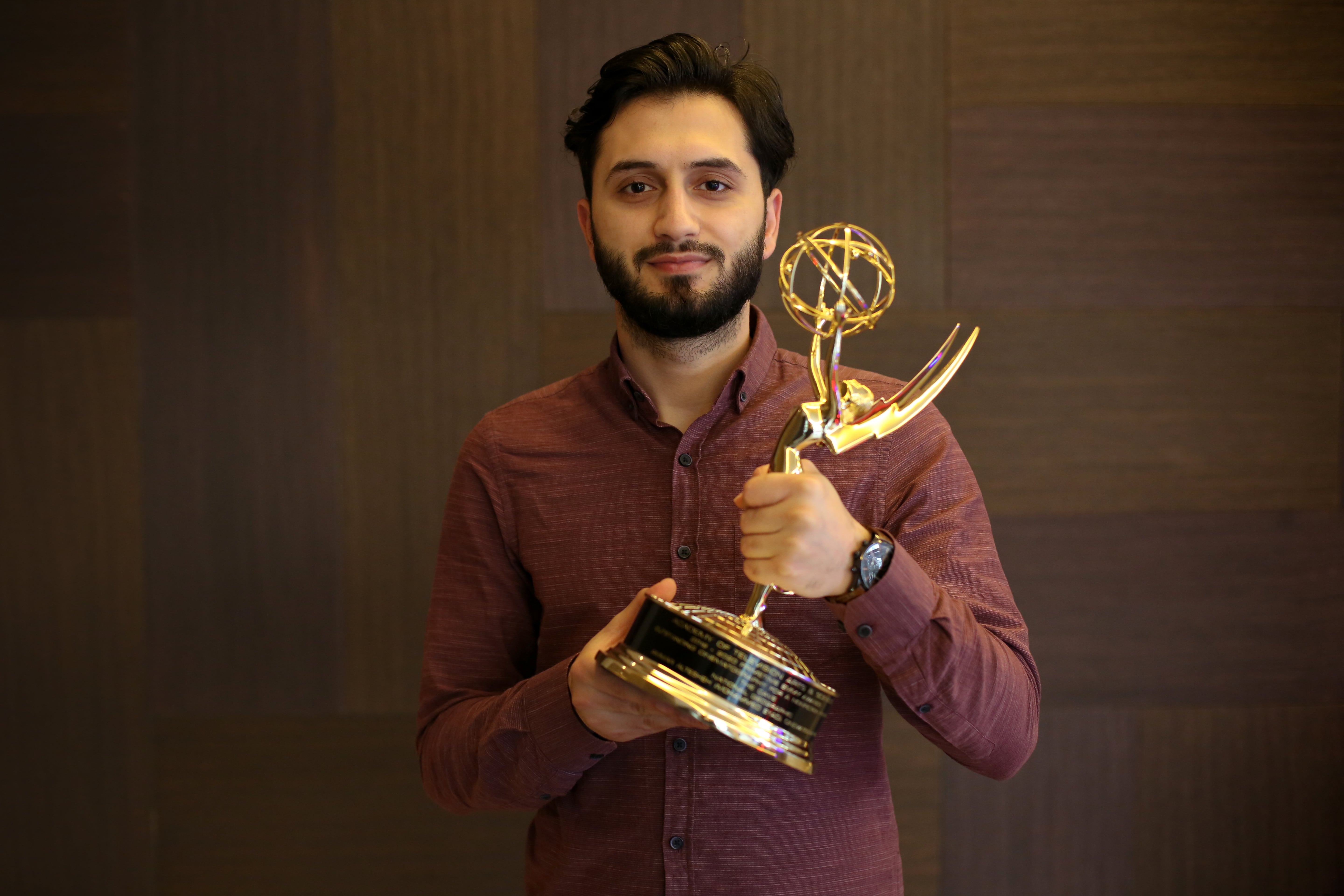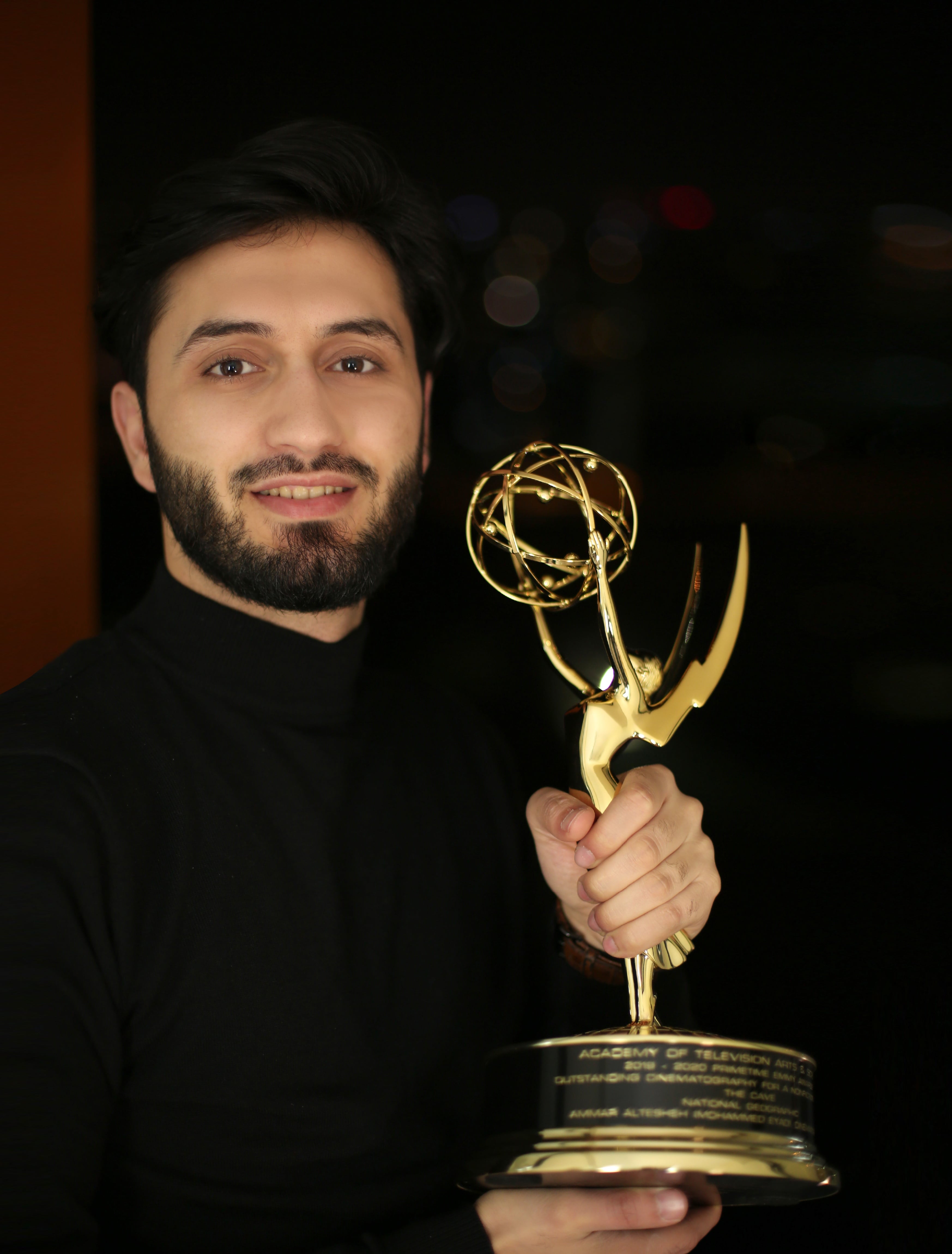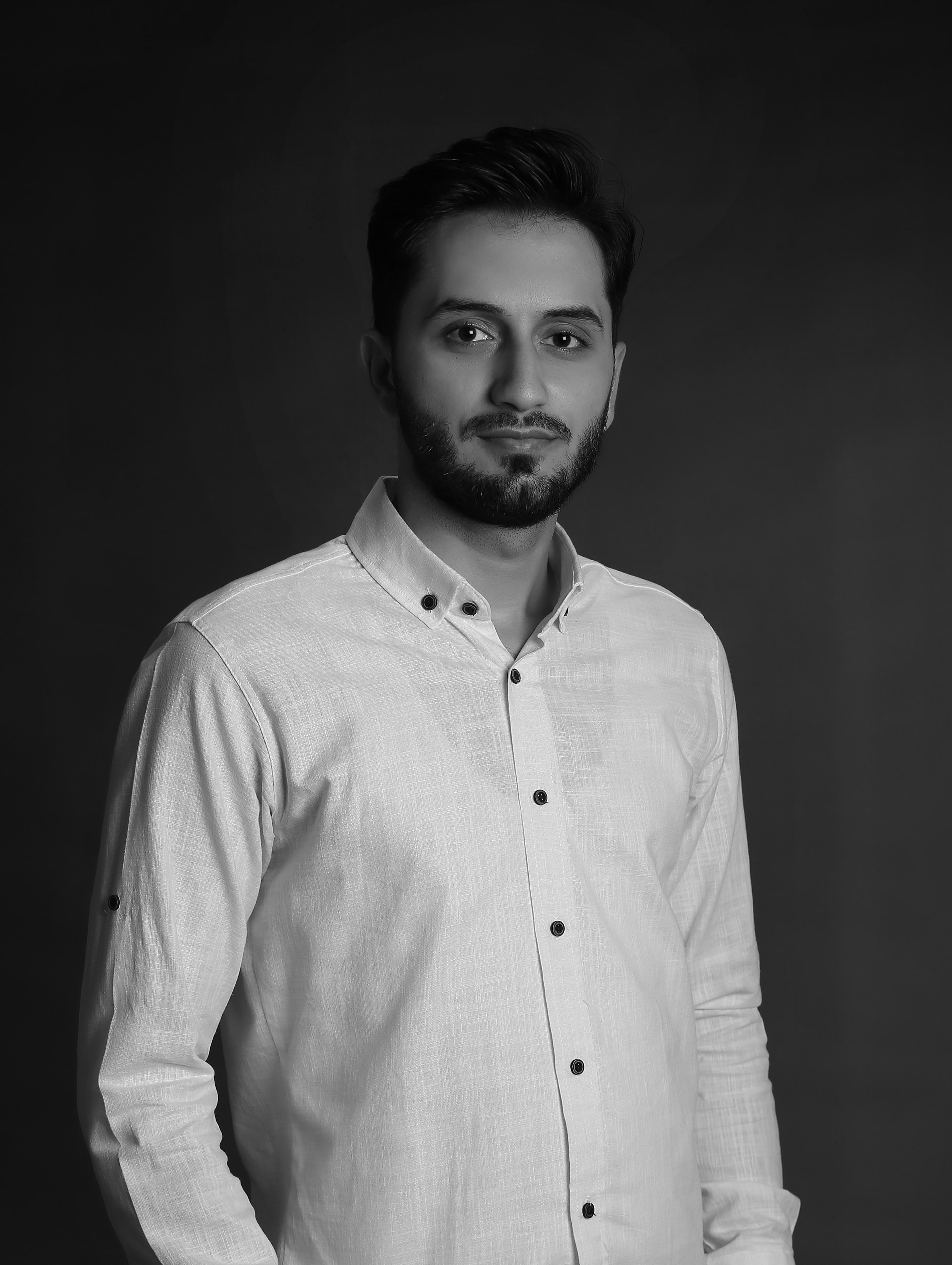Emmy awards are one of the awards that excite every media professional. We can say that these awards are the Academy awards of television productions. But can a student get the award that professionals dream of?
Yes, he/she can.
Istinye University Radio, Television and Cinema department student Mohammed Eyad received an Emmy award in the Outstanding Cinematography for a Nonfiction Program category with the documentary The Cave, in which he took part as the director of photography.
What Eyad told is also very valuable in terms of showing how a cinema student uses his art to make his people heard in the face of the cold reality of the war.
We congratulate our student on this great success and thank him for making our department and university proud.
Editor: What first interested you in filming and how did you get started?
Mohammed Eyad: I had a hobby of mobile photography before the Syrian revolution started in 2011, and I had this passion for photographing, and I had a small personal camera for that, I can say that I have two stages of photography before and after the revolution, before the revolution it was just a hobby and photographing beautiful memories and I had that passion to photograph people and places I faced, and after the beginning of the Syrian revolution 2011, I began to photograph events from demonstrations and protests then broadcast them via the Internet to convey the voice of the people, their demands, and rights to the world during the absence of the international media, Photography was full of dangers in these exceptionally difficult circumstances, and we were about to death many times, our presence in the cave was one of the most dangerous places because the hospitals and medical centers were threatened with the bombing at any moment, and they were more likely to be targeted more than other places, but we had to struggling and sacrificing, to convey our message, the truth, suffering, and tragedy of the trapped civilians.
My colleagues and I suffered several injuries, the first of which was in 2013 and the last in 2018 before we were displaced from eastern Ghouta, we were targeted to the direct bombing in our office and our house, the targeting resulted cause many wounds to me, and My colleague was seriously injured, and he was in real danger, and he lost his leg as a result of this targeting.
Editor: What do you like most about filming?
Mohammed Eyad: What I like most about filming is the ability to relive the moments that I capture by my lens, including all emotions and feelings, in addition to that I was able to photograph and document a time and days that I consider it the most difficult days in all my life.
As a result, photography, reporting and documenting events, and communicating the voice and message are the most important priorities for me.
Editor: Do you have any film plans, possibly somewhere you would like to film?
Mohammed Eyad: I think There is no person who does not have a plan, in addition to my intention to continue conveying the stories and problems of the Syrians, I have a plan for a movie, but it is still under review and development.
Editor: Let's talk about your awarded film... What does it tell?
Mohammed Eyad: Firstly, the cave was not just a movie, it was daily life for more than 400,000 humans under the siege in eastern Ghouta near Damascus and was a haven for them at the time of the bombing and air struck, at the same time when anyone was requested and needed the treatment and health cur the cave was the first destination.
The documentary film, which I participated in filmed, revolves around a Syrian underground hospital run by pediatrician Amani Ballour, through which she treated the people of Eastern Ghouta, east of Damascus, during the continuous shelling of the city under the complete siege that lasted nearly five years between 2013 until 2018.
The film's protagonists are the doctors and nurses of the cave Hospital who risked their lives to save the other's lives most of them were children and women.
The Cave was nominated for the Academy Award for 2020 and won many awards, the most important of which was the People's Choice Documentary Award at the 2019 Toronto International Film Festival.
Emmy Award for Outstanding Cinematography For a Nonfiction Program – 2020 , Emmy Award for Exceptional Merit in Documentary Filmmaking – 2020
And Critics' Choice Documentary Awards 2019
Editor: As a University student, you have won the Emmy award. What would you like to say?
Mohammed Eyad: As a student who stopped his education in the siege of Ghouta, Damascus, and worked as a cameraman was not at the time of filming the film a university student, but after I got out of Syria and when the process of film production, I started studying the field academically, which qualified me to start understanding the field more deeply and the film was a great point in my career and gave me a great push forward as a cinematographer.
Receiving the Emmy Award in cinematography gives me a great opportunity in the world of cinema and filmmaking, and it is also a moral motivation that pushes me to continue in this field at the academic and professional levels.
Editor: What are your aims on studying radio television and cinema department?
Mohammed Eyad: As I mentioned previously, the main goal is to add an academic aspect "which was interrupted by the war conditions in Syria" to the existing practical experience that I gained during the years of work in Syria, in addition to expanding my experiences within the field.
Editor: What do films mean for you?
Mohammed Eyad: Films are one of the most important methods of conveying peoples' issues, their pain, and suffering, and it was our weapon to convey the voice of our case, If I want to talk about this type of film, and especially in mine, I consider it's a historical document, writing of history and documentation of the events that my country went through during the war.
Editor: What is your next step?
Mohammed Eyad:As close steps, right now we have some projects that we are working to producing with some well-known local production companies and I work hard to specialize a part of my time to continue academic studies and the other to start new projects and films.
Editor: Thank you very much for this nice chat. I wish you full success.
Mohammed Eyad: Thank you very much. I hope I was able to convey my excitement to the readers.






